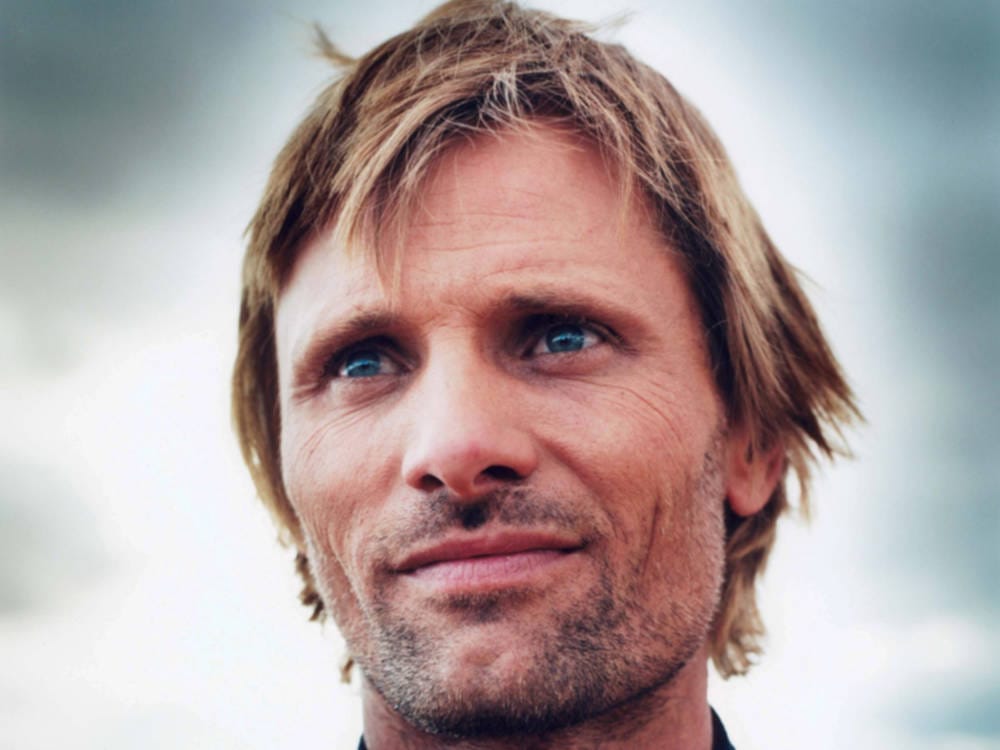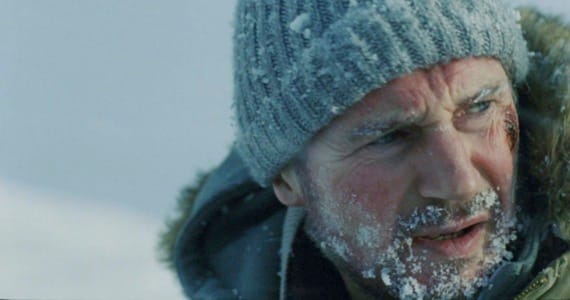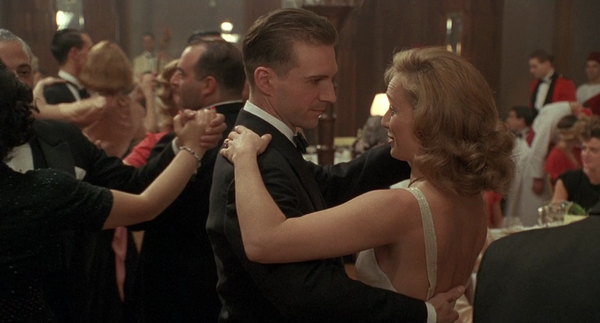Felix Film talks to Aragorn
Lucy Wiles interviews Viggo Mortensen, the star of A Dangerous Method

Last week, Felix Film was lucky enough to wangle a seat in a round-table interview with Viggo Mortensen – yes, an actual real actor – who played Freud quite brilliantly in A Dangerous Method. The interview took place at Freud’s old London house (which is now the quaint and interesting Freud Museum, hidden in a residential area of North London) in Freud’s drawing room, around Freud’s table… it was all rather strange, actually. You feel a little bit intrusive – Mortensen describes our ability to wander round Freud’s house and touch his things as “perhaps wrong… maybe tacky,” although he later laughs that he got over it when researching his character. It is clear that Viggo Mortensen is a very polite, very considered man, who has clearly spent a great deal of time studying Freud for this role, and seemed happy to have a conversation with us about it all.
Having visited the Freud museums in both London and Vienna, Mortensen tells us how he enjoyed getting a real feel for the places – Freud’s home in Vienna was temporarily ransacked by the film crew for props and artifacts, so the London home actually gave him the best idea of what Freud’s home looked like. “I liked thinking of him in the garden, seeing the images of him back there,” he says, while wandering around the room and looking interestedly into the garden, “That always helps me as an actor.” The film itself was mostly filmed in a studio in Cologne, Germany, where the interiors of Jung’s house and Freud’s office were copied down to the very last possible detail – Mortensen tells us that the film’s director David Cronenberg even had the blueprints of both houses so that the sets were really perfect. The exterior for Jung’s house was filmed in southern Germany, as well as a few other little scenes in various places.
It’s well known that Mortensen is keen on researching his roles, immersing themselves in their lives as much as he can. When asked whether there was simply too much to absorb with as complex a character as Freud, he spoke about the impossibility to absorb a person’s whole life in such a short time frame. “If I had a choice, I’d always ask for more time,” he shrugs. In his short period of preparation however, it seems Mortensen managed a great deal, amassing vast quantities of articles, papers and descriptions of Freud, as well as reading through some of Freud’s own work. He assures us that understanding Freud’s behaviour and mannerisms is more important for an actor to grasp the character than simply learning about Freud’s academic ideas. Mortensen studied Freud’s posture, the way he sat, how he held his cigars, and how he composed himself in order to get a clear picture to represent – quite a feat for Mortensen to have accomplished from the limited descriptions of his character. He adds that he had to smoke a lot of cigars on set – “He [Freud] smoked twenty-two [a day], but I had to smoke many more parts of cigars!” he laughs, adding that it was hard to get used to, as well as being hard to recover from. However, it wasn’t all bad as the cigars hold happy childhood memories for Mortensen, whose grandfather (who was a farmer in Denmark) smoked them, and his grandparents house smelled like it. “The sense of smell is definitely underrated,” he says.
It was mentioned in the interview that Freud’s witty side is not so well known, and it was asked whether Mortensen was keen to show this side of him. He spoke about his initial worry that Freud was just a ‘stern academic type’, and that his portrayal would be hugely difficult – especially as his part in this film involves long stints of intellectual dialogue. On discovering his love of jokes and humour, however, Mortensen was less concerned, and found out more about this side of Freud. “He even supposedly once met up with Mark Twain, and they sat and smoked cigars and told jokes for hours,” he smiled. Unlike his academic peers, Freud chose to spurn Latin and Greek vocabulary, and spoke in what Mortensen describes as ‘good, clear German’. He didn’t always take himself too seriously, and made many jokes and witty asides – untroubled as to whether they were recognised or not. “He was very English, I think, in that way – had a very English sense of humour,” remarked Mortensen, even going as far as to likening Freud’s sharp, dry sense of humour to his director’s; “It maybe helped make it a such a good movie.”
It’s fun working with David [Cronenberg]… he’s excited, running around...
Talk moved onto David Cronenberg, the director of A Dangerous Method. When asked if Cronenberg told his the reason for his casting, Mortensen says, modestly, “He never came right out and said it… I guess there was something right.” He remembers how much fun it is working on set with Cronenberg, and cites this as one of the main reasons he decided to take on the role, alongside Cronenberg’s interesting ideas and attention to detail. “It’s fun working with David… he’s excited, running around,” grins Mortensen. “David remembers that, after all, it is play. It’s make-believe. It’s a game which he enjoys playing.” Despite many critics saying that this is a departure from Cronenberg’s usual type of movie, Mortensen insists that it’s not so strange. “I thought Eastern Promises was quite different from A History of Violence, and this film was quite different from those two.” He goes on to praise his director: “I don’t think he imitates himself… he’s not at a lack for good ideas. Some living directors who’ve been making movies for forty years like he has… become less interesting as directors, and seem trapped by peoples perceptions of them.”
Having discussed the idea of directors becoming less interesting because of ‘staying safe’ strategies, it was wondered aloud whether some actors might have the same problem. “As you get older you get tired and it takes a lot to challenge yourself. But then it can be invigorating, probably rejuvenating,” says Mortensen, enthusiastically. He clearly feels strongly about this point, and it’s safe to say he doesn’t shy away from a different kind of role. “But you do have to face it – with fears of ‘am I going to fail this time’ ‘I haven’t tried this before’… some actors get tired and they get lazy. And it’s safer to repeat something you know works, and that you have a target audience for. Some actors perfect [their repeated role] in a ‘zen fashion’, some challenge themselves to new roles. “Actors who like myself are terrified of doing a bad job… you don’t want to let anyone down, don’t want to let yourself down,” he tell us. “And it takes a lot of work to do it, so you want to do it right… Life is short, why not try and do the best you can?”
Mortensen clearly prefers to take a risk once in a while and work hard to perfect a role – he clearly is unhappy with the idea of ‘staling’ and being the same kind of character over and over. “It’s approaching new things that makes me afraid.” He is happy to take a gamble on a role, providing a good director he can trust feels he’s up to the part. “Although I don’t think any other director in the world except Cronenberg would have thought that I was right for Freud!” he chuckles. Having just finished a run of the theatre production Purgatorio in Spain, which involved just two actors (Mortensen and an actress) on stage for almost two hours, with no interval and no scene changes, Mortensen knows about a challenge. “It was terrifying,” he remembers, “Those first performances I was thinking ‘what have I done?’, but by the end I loved it.” He adds that he felt he owed it to the people who wanted to see the play and owed it to himself to step up to the challenge of intense theatre, and he will always be glad that he did, as he should - the play was a resounding success with very good reviews. “I learned more about acting and thinking on your feet in that play than in my last ten or fifteen years in filming,” he says, seriously. “There’s no saying cut, you just figure it out; it’s like an hour and forty minutes long take. I really loved it, loved the connection with the audience.” Mortensen speaks about how he likes hearing how the audience truly reacts to a film, and admits that he has been to see his movies aside from premieres. “It’s more interesting to see them with a regular paying audience because there’s no favouritism, just people reacting honestly… that’s probably the best way to see it,” he muses.
Those first performances I was thinking ‘what have I done?’, but by the end I loved it
Moving back onto the subject of Freud, Mortensen is asked what scene he would have liked to have elaborated on in A Dangerous Method, given the opportunity.
“I don’t think anything was missing from the slice of time that we were dealing with,” he says, “But it might have been interesting to see Freud in the United States in 1909 lecturing and interacting with Americans, not just American academics, but American audiences. [A brief scene in the movie shows Freud and Jung getting onto the boat to go to America for a conference.] He had a lot of preconceived ideas - not all good, mostly not good - about Americans!” Talking about a very well-acted (not that Mortensen mentioned that himself!) scene where Jung has a first class ticket on the boat, and Freud doesn’t react to it although clearly put out, Mortensen says, “I think he [Freud] was a natural gentleman, and although the Jungians or anti-Freudians might disagree, I would say that he was essentially a modest person and a generous person… But he could also be very cutting, he didn’t take well to being contradicted… He was insecure - like we all are.” Which again brings to light just how much work Mortensen put into the role.
We idly discuss how much we enjoyed the film, even though a few of us had very little knowledge of Freud or Jung. “I don’t think you have to know anything about psychoanalysis, or the history of psychoanalysis, to enjoy this movie,” says Mortensen, “Because it’s essentially about people who are interesting, who are intelligent, who are very ambitious and keen to make their mark in their field, but who are also very competitive, jealous insecure and behave often as childishly as the people they are supposed to be helping.”
And with that, and a brief handshake, he was ushered from the room to other duties. And I didn’t shriek “Aragorn!” at him once.
A Dangerous Method is out today








